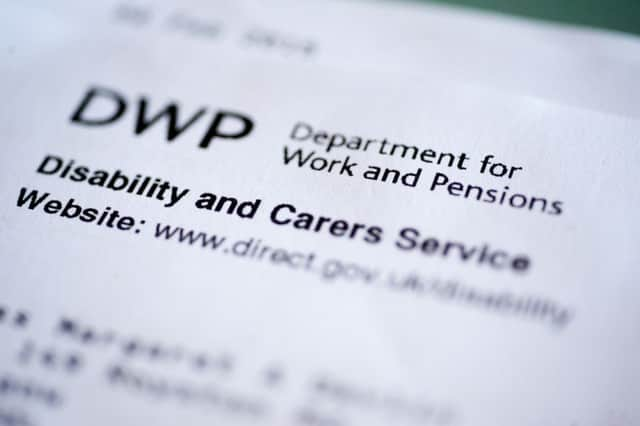Scots with disabilities losing benefits due to ‘poor assessments’


Analysis of Freedom of Information responses shows more than half a million people were wrongly denied disability benefits across the UK from 2013 to 2018.
In Scotland, more than 120,000 appealed against the loss of benefit payments in the five year period – with 65,750 succeeding.
Advertisement
Hide AdAdvertisement
Hide AdWhen all types of benefits are considered, the success rate north of the Border for appeals rose from 41 per cent in 2013-14 to 63 per cent.
Charities and advice providers said the figures show the UK government’s benefits tests were beset by “poor decision-making” and “obvious inaccuracies”.
The research, carried out by the BBC Shared Data Unit, found that most of the appeals concerned Employment Support Allowance (ESA), which is paid to people who cannot work because of illness or disability; the Disability Living Allowance (DLA), which is paid to people with extra care or mobility needs; and Personal Independence Payments (PIP), which was introduced to replace DLA.
Initial assessments are carried out on behalf of the Department for Work and Pensions (DWP) by the private companies Capita and the Independent Assessment Services (formerly called Atos), which have come under criticism for scoring claimants too harshly.
In 2017, Britain’s most senior tribunal judge, Sir Ernest Ryder, senior president of tribunals, also said the quality of evidence provided by the DWP was so poor it would be “wholly inadmissible” in any other court.
Capita and Maximus said the majority of people were satisfied with the process, and they were working with charities and disabled people’s organisations to improve their services further.
The UK Government said appeals represent a small percentage of all benefits claim it handles.
Daphne Hall, the vice-chair of the National Association of Welfare Rights Advisers, said: “The reason for the high success rates [at tribunals]...is because of the poor assessments carried out by health professionals.
Advertisement
Hide AdAdvertisement
Hide Ad“The DWP tend to base their decision purely on these assessments and disregard other evidence.”
A spokesperson for the DWP said: “We are committed to ensuring people get the support they are entitled to and spend £55 billion a year supporting disabled people and those with health conditions.
“We have been improving the assessment process and just four per cent of all ESA decisions and five per cent of all PIP decisions are overturned at appeal.”
A spokesman for the Scottish Government said: ““People have repeatedly told us the UK Government’s welfare system does not work for them. That is why we are building a fair and transparent social security system that works for people, not against them.
“We have already committed to a number of improvements in disability benefits which will be devolved. including significantly reducing face to face assessments, and where necessary we will provide a flexible service that works effectively for people, whatever their condition or disability. Importantly we are working to make sure that decisions that are taken, are right from the start.”